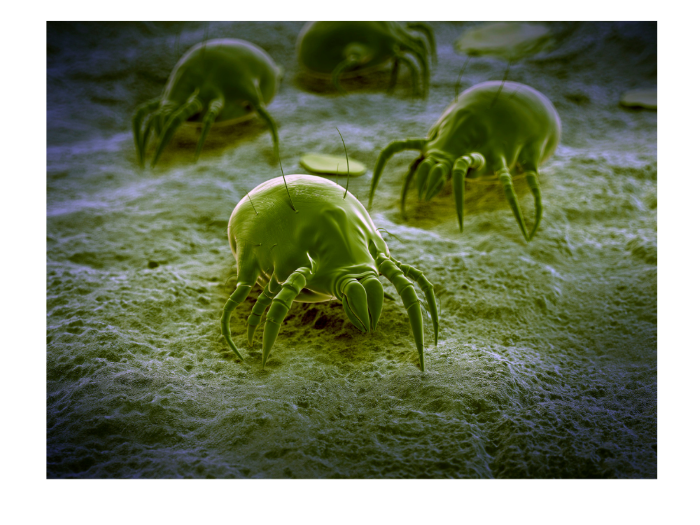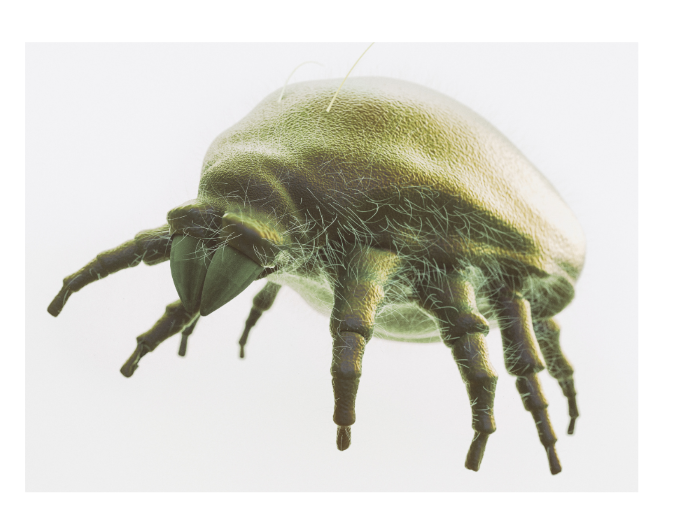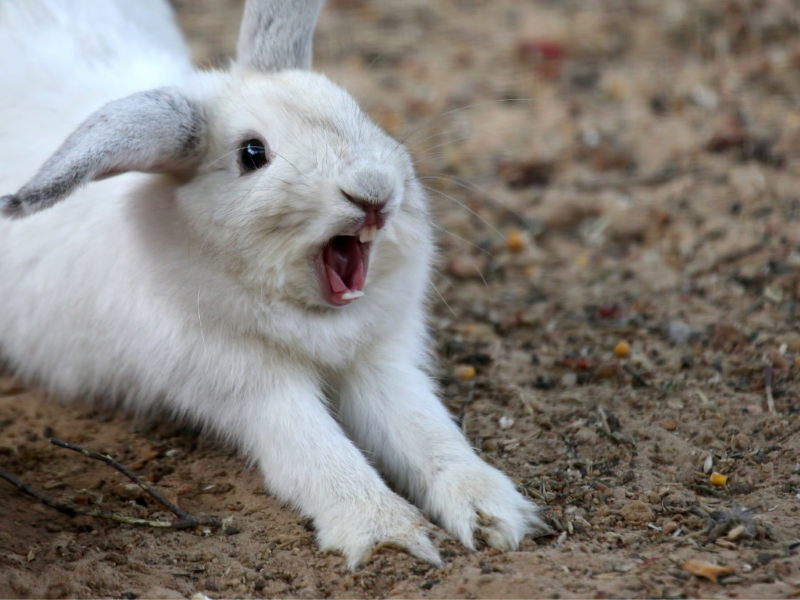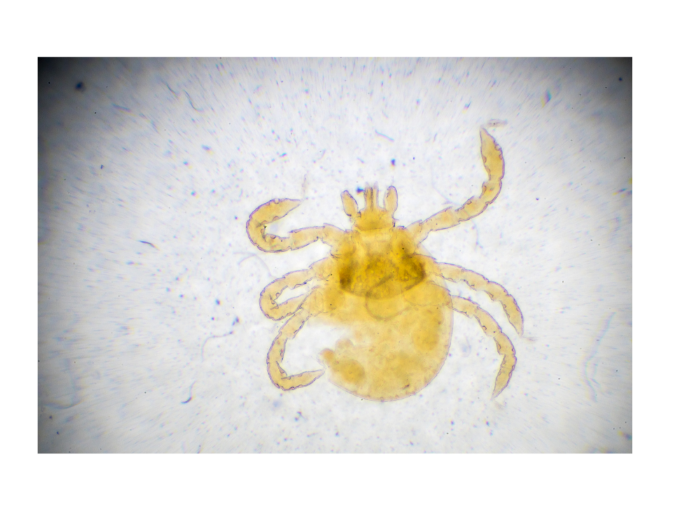After raising rabbits for so long, we have found that once-in-a-while our rabbits will come down with some unfavorable health conditions that we need to identify, remedy, or provide palliative care for. If you’ve been lucky and your rabbits have been healthy, then count your blessings!
In this post, we focus on the unfortunate afflictions associated with hair and fur falling out in rabbits.
If your rabbit is losing hair and is not going through a natural molting period, then it may have: parasites, a dietary deficiency or allergy, a significant stressor in its life – such as a “bully bunny”, dental problems, a bacterial infection, a hormonal imbalance, “false pregnancy”, partners that over-groom, or all of the above!
We all need to be able to quickly and confidently identify health issues in our rabbits. Read on to learn about some of the most common health issues associated with rabbits losing hair.
Why Is My Rabbit’s Hair Falling Out
The most common affliction that causes rabbits to lose some hair is an infestation of parasites such as the Cheyletiellosis mite known as “Walking Dandruff”, these mites do not burrow in the skin, instead they crawl across the skin. The mites cause the skin to flake off, much like dandruff, and they irritate the rabbit’s skin. We mention these parasties more in detail below!
Rabbits Molts – Rabbit Molting Is Natural.
A rabbit molting is natural, it is not an affliction or disease! You can learn more about rabbit molting in our post: Rabbit Normal Hair Loss Due To Natural Molting.
The natural process of molting, where an old coat falls out as a new coat grows in, is the first thing we think of when someone mentions, often in a bit of despair, “My rabbit’s hair is falling out!”
In particular, rabbits will molt or shed their thicker winter coat as a new thinner, summer coat grows in. Think about it, most dogs, cattle, and horses shed a heavy winter coat that grew in as winter approached. As bunnies shed that winter coat, a new lighter summer coat grows in.
Seasonal Molting may result in your rabbit losing quite a bit of fur, and even showing some spotty or uneven, rather ugly, bare spots until the new fur grows in. Rest assured that molting is not an affliction or illness. It is a natural adaptation for the benefit of the rabbit.
Why Is My Bunny Losing So Much Hair?
OK, now we can focus on identifying and discussing the common afflictions and diseases that may cause our rabbits to lose a significant amount of hair; also known as abnormal hair loss in rabbits.
We’ll list them here and then go into more depth about each of them.
- Parasitic Infestation: Mange Mites, Fur mites, Ear Canker Mites, Tropical Rat Mites (aka Feather Mite), Ringworm fungus. For more info about identifying and treating mites on rabbits, read Rabbit With Mites!
- Wet Fur: Saliva Burn (Dental issues), Urine Burn (probable Urinary Tract Infection).
- Bacterial Infection: Bacterial Skin Infection. Mostly staphylococcus based infections in the vicinity of ears and genitals. Also general dermatitis.
- Sores: Sores may be due to moisture in the rabbits cage… which leads to bacterial dermatitis.
- Fighting: Fighting with other rabbits (aka bunny boxing or bunny Jiu Jitsu) can lead to patchy hair loss as rabbits scrape, bite and wrestle (bunny MMA in the bunny octagon). Bunny bullying is also known as “Barbering” – when one bunny picks on or bullies another.
- Alopecia: or other hormonal imbalance that affects hair follicles.
- False or Pseudo- Pregnancy: Some confused females mistakenly thinking they are about to give birth, begin to pluck their fur to make a nest for their expectant babies.
- Over-Grooming: sometimes by over-meticulous self grooming and other times by another rabbit.
This list of ailments that result in abnormal rabbit hair loss was synergized from the following sources: Miami.edu; VCA Animal Hospitals; MediRabbit.

Rabbit Health – Education, Preparation, Observation, Action
Before discussing these “hairy” ailments in detail we want to speak to the importance of owners educating themselves about common rabbit ailments, preparing for the seasonal afflictions, observing their bunnies, and proactively taking action.
Being proactive with the care of your rabbits will make a tremendously positive difference in the life of your rabbits and in your experience and sense of fulfillment. Proactively taking responsibility for the safety, health and happiness of your rabbits is also known as “Creating Your Own Luck” and “Stacking the Deck in Your Favor”!
- Education: Learn what to look for regarding rabbit health and anticipate how each season may challenge your rabbits.
- Preparation: Ensure your rabbit living environment is safe and meticulously clean. Use appropriate and animal safe cleaners. Feed quality foods in the right quantities.
- Observation: Deliberately spend time with your rabbits on a regular basis. Deliberately observe their habits and interaction. In doing so, you will come to know their relative strengths and weaknesses, and their personalities.
Action: Take informed action to prevent, mitigate and remedy issues that you anticipate or observe.
Symptoms Associated With Rabbit Hair Loss
In most cases, when a rabbit has an abnormal hair loss, the skin is also affected. Rabbits have very sensitive skin. For rabbits and humans alike, skin is the largest organ of the body. With abnormal fur loss in rabbits we most often find one or more of the following effects on the rabbit’s skin:
- Crusty Looking Surface Skin
- Flaky Dandruff Skin
- Open Sores and Inflammation
- Raised bumps on reddish skin
- Scaling skin
Many of the skin conditions make the rabbit itch and scratch. As the rabbit itches and scratches the health and condition of the skin gets worse, eventually it may bleed and become infected. Realize that infected skin can lead to systemic infection which, left untreated, can quickly kill a rabbit.
Other Symptoms Associated With Rabbit Hair Loss
The skin irritations and afflictions that accompany the hair loss are sometimes more of a threat to the rabbit’s health than the loss of hair.
- Papules and pustules
- Visible infection of the dermal and subcuticular tissues
- Swelling
- Lethargy
- Erythema (reddening of the skin)
- Ulceration
- Abscessation and tissue necrosis
- Moist dermatitis is characterized by a blue/green discoloration of the fur

Rabbit Hair Loss Due To Parasites
The primary rabbit parasites are Mange mites, Fur mites, Ear Canker mites, Tropical Rat mites (aka Feather mites), Burrowing Mange mites, and Ringworm fungus.
Walking Dandruff in Rabbits
The most frequent parasite associated with rabbit hair loss seems to be the “Walking Dandruff” Cheyletiellosis mite. Walking Dandruff, or Cheyletiellosis, is caused by the parasitic cheyletiellosis mite. The mite does not burrow but feeds on and walks across the rabbit’s sensitive skin, causing large white flakes of skin to flake off.
VCA Hospitals, a national network of animal hospitals run by veterinarians, explains that:
- “The parasite often shows up in young animals or older debilitated animals, especially if they can’t properly groom themselves because of teeth problems or arthritis or other mobility issues.
- Walking dandruff also happens more frequently in longer haired rabbits.”
The mite is highly transferable – meaning it will try to infest your other pets, such as dogs and cats. The mite may also spread to rugs, beddings, towels, blankets, drapes, etc in your home, but cannot survive without a host.
Other Prevalent Rabbit Parasitic Infestations
Above we mentioned several other parasites that like to take up residence with rabbits. The range of infestations is fairly extensive and a bit gruesome looking… you’ll know if your rabbit has a problem… and you should consult your veterinarian immediately. The Miami.edu reference article has some excellent pictures as well as more depth and breadth of coverage.

Treatments for Rabbit Hair Loss Due To Parasites
There are a number of very effective medicines for small animals and specifically for rabbits. However, do not try to identify, diagnose or treat these infestations by yourself. The best remedy for your rabbit is to see your local rabbit veterinarian for a thorough examination and treatment recommendation.
Tip: Do not attempt to bathe or dip your rabbit, an already stressed rabbit may not fare well with a bath.

Rabbit Hair Loss Due To “Slobbers” or Saliva Burn
The wet fur is due to the rabbit drooling, which is indicative of a tooth or dental problem and the associated loss of fur is due to Saliva Burn. Rabbit drooling, most often due to dental malocclusion or misalignment, is also known as “Slobbers” or “Wet Dewlap”.
As the saliva soaks the fur (typically under the mouth, in the dewlap area, and on the chest) it aggravates the skin. The hair begins to fall out and dermatitis sets in. Note that a rabbit with “Slobbers” may also be having trouble eating. As you know, not eating well quickly leads to additional issues for rabbits.
Treatment for Rabbit Slobbers and Saliva Burn
First, have your rabbit’s teeth checked by your veterinarian or a small pet dentist. It is very likely that a malocclusion or infection exists and the doctors can help remedy the dental situation.
Secondly, for the dermatitis, see your veterinarian regarding cleaning and treating the dermatitis with an appropriate topical antibiotic or salve depending on the severity of the dermatitis.
Rabbit Hair Loss Due To Urine Burn
The associated hair loss is usually between the rear legs, on the feet, belly, or tail and the skin will likely be very sore and raw. If urine is soaking the fur, then your rabbit may have a urinary tract infection (UTI), a leaky bladder, or bladder sludge (calcium build up in the bladder).
The urine is caustic to the skin. A serious dermatitis sets in and the hair falls out. Your rabbit’s affected skin will be very sore and the rabbit will move very slowly.
This Video provides a great example of urine burn or urine scald due to a UTI.
Treatment for Rabbit Urine Burn
Take your rabbit to your local veterinarian for further evaluation and appropriate treatment to prevent further urine burn and to heal the skin.
No doubt, the skin needs to be gently but thoroughly cleaned and the rabbit kept in a dry habitat. And often, a round of antibiotics will help a rabbit UTI.
Rabbit Hair Loss Due To Bacterial Infection
Rabbit “Bacterial Skin Infection” is mostly, but not exclusively, staphylococcus based and often in the vicinity of ears, genitals, hind quarters above the tail and thighs.
These are places where moisture may gather and it is hard for the rabbit to reach in order to groom itself. General bacterial dermatitis also plagues rabbits’ sensitive skin. Each of the hair loss afflictions discussed in this post may also be accompanied by a general bacterial dermatitis that exacerbates the rabbit’s health situation.
Rabbit Skin Sores: We note that sores, particularly on hocks, may be due to moisture collecting on the floor of the rabbit hutch or cage… Repeated or cumulative exposure to the moisture leads to bacterial dermatitis and hair loss in the affected area.
Fly Strike: Bacterial skin infections can make the rabbits skin friable, and a bit stinky. This skin is prone to fly strike. Fly strike on infected skin can be life threatening for a rabbit who’s immune system is already under attack.
Treatment for Rabbit Hair Loss Due To Bacterial Infection
It is very important to ensure a dry habitat for your rabbits. Your vet will likely shave the affected area and have you apply a topical antibiotic for several weeks.

Rabbit Hair Loss Due To Fighting
Fighting with other rabbits (aka bunny boxing or bunny Jiu Jitsu) can lead to patchy hair loss as rabbits scrape, bite and wrestle (bunny MMA in the bunny octagon).
Treatment for Fighting Rabbits
The most expedient remedy for this is to separate the rabbits. This also often turns out to be the best long term solution. Additional remedies that may help include spaying and neutering the determined pugilists.
Many vets will recommend that all non-breeding domestic rabbits be spayed and neutered for their health and safety. You make that decision for your rabbits, not anyone else.
Rabbit Hair Loss Due To Alopecia (Hormonal Imbalance)
When a rabbit experiences hair loss due to a hormonal imbalance, it is said that the rabbit has Alopecia. Alopecia is a common disorder in rabbits that involves a hormonal imbalance that affects hair follicles. There are normally two forms of it, inflammatory and noninflammatory.
There is no distinct sex, age, or breed of rabbit that is more likely to acquire this disorder. If you’ve tried other solutions and remedies and feel that you haven’t been successful in identifying the cause of the hair loss, then you may have a rabbit with alopecia, triggered by hormonal imbalance.
An imbalance may be due to thyroid mal-function or an endocrine system dysfunction or imbalance. Note that the hormonal imbalance in rabbits is often the symptom of another cause. Here is a list of stressors that may trigger rabbit hormone imbalance which in turn may then result in rabbit alopecia:
- A major infection, such as rabbit bite (from fighting) that gets infected, goes systemic and is cured only by strong antibiotics.
- A major stressor, such as the loss of a bonded rabbit, may trigger a hormonal imbalance.
- A major trauma, such as a life threatening illness or a major surgery may also trigger a hormone
imbalance. - An acquired Immune Disorder may trigger a hormone imbalance.
Treatment for Rabbit Hormone Imbalance.
If the rabbit has not been spayed or neutered, then your veterinarian will likely recommend it. Your veterinarian may also want to send rabbit blood samples to the laboratory for further hormonal analysis and endocrinology.
Hereditary And Acquired Alopecia in Rabbits
A rabbit’s alopecia may be hereditary; as in a hormone imbalance that is inherited.
A rabbit may also acquire alopecia due to any of the other hair loss ailments listed in this article (bacterial, fungal, parasites, nutrient deficiency, hormonal disease, hair plucking, environmental stressors, hygiene, etc.).
Hair Loss Due To Rabbit “False Pregnancy” or “Pseudo- Pregnancy”
Some adult females who are not pregnant become confused, think that they are pregnant, and begin to pull their fur and make a nest.
Treatment for False or Pseudo- Pregnancy in Rabbits
For repeated instances, many veterinarians will recommend that the rabbit be spayed.
Rabbit Hair Loss Due To Over-Grooming
If one rabbit is consistently too aggressive in grooming another rabbit, then hair loss can result. This is said to be rare, but does happen. It may be a sign of boredom between bonded bunnies.
Treatment for Over-Grooming
Ensure your bunnies have some new toys and get plenty of exercise. Make sure the bunny that is getting over-groomed can get away from the aggressive groomer; you may need to separate these rabbits.
Top 7 Rabbit Skin Problems
Frequently Asked Questions Related To
Why Is My Bunny Losing Hair
Why Is My Rabbit Losing Fur On His Hind Legs?
Losing fur just on hind legs could be due to mites, or urine scald, or bacterial skin infection, all covered in some detail above. Some rabbits are unable to adequately groom their hind legs. This makes the hind legs more susceptible to problems in damp environments.
If you’ve determined that your rabbit is not molting, then please consult your veterinarian.
Why Is My Bunny Losing Hair On His Face?
It is uncommon for a rabbit to lose hair on his face, except perhaps during a very quick molting. Your bunny may have mange mites, fur mites, ringworm, or a dermatitis that is being triggered by some other disease vector. You should consult your veterinarian.
Why Is My Rabbit Losing Hair On His Back?
If not molting, then the rabbit may have mange mites, fur mites, ringworm, or a dermatitis that is being triggered by some other disease vector. You should consult your veterinarian.
Rabbit Hair Loss Around Eyes?
A rabbit with hair loss around the eyes is something to be concerned about. You should consult your veterinarian.
Your rabbit may have an eye infection or disease that is causing the eye to weep. The weeping soaks the fur around the eyes and this irritates the rabbit’s sensitive skin, causing a dermatitis. As the dermatitis progresses the hair falls out. Alternatively, the rabbit could have mange mites, fur mites, ring worm, or a bacterial skin infection.
Why Do Rabbits Lose Hair On Their Ears?
Most commonly, rabbits will lose hair on their ears due to Ear Canker mites. Alternatively, a number of factors, none of them beneficial for the rabbit, may be causing the hair loss. We presented these factors in the post above. Regardless, you should consult your veterinarian.
Rabbit Losing Hair On Nose?
A rabbit that is not molting, losing hair on its nose is a serious matter. It may have mange mites, fur mites, ring worm, a bacterial infection causing dermatitis, etc. You should consult your veterinarian.

Final Thoughts on Why Is My Bunny Losing Hair
As we discussed, there are quite a number of ailments that result in some loss of rabbit fur or hair. Most are readily treatable and can be remedied, particularly with the expertise of your veterinarian.
Remember: the earlier the ailments are identified and treatments initiated, the better the outcomes. If your bunny is losing hair and is not in a natural molt, then you should consult your veterinarian.
Additionally, as they say, an ounce of prevention is worth a pound of cure! Meaning, proactively clean hutches and cages with natural, safe cleaners and observe your rabbits. Learn about the ailments that may plague your rabbit so you are informed and know what to look for. And most importantly, spend time with your rabbits on a regular basis.
In doing so, you will come to know your rabbits’ relative strengths and weaknesses, and their personalities. This will help you detect problems and take appropriate corrective action much sooner than most owners. As a result, your rabbits will thrive and you will have a fulfilling rabbit raising experience!

